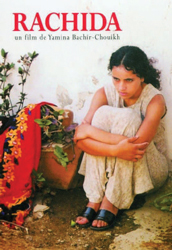The University will be hosting the Provost’s Film Series featuring movies on Muslim cultures with a focus on women.
The four films being presented at Pollak Theatre were organized by Provost Thomas Pearson, his office and the Office of Global Initiatives and will be shown throughout the spring semester.
The movies this year are Scheherazade: Tell Me A Story (January 30), Made in Pakistan (February 21), Rachida (March 21), and Under the Bombs (April 5).
Each film comes from a different country, each with its own unique story of women in Muslim culture. Three of the films were produced and made in the Middle East, shot in locations such as Egypt, Lebanon and Algeria.
For example, Made in Pakistan is a documentary filmed in Pakistan following four citizens, including two women entrepreneurs.
Pearson says this year’s theme was inspired by the Arab Spring and thought “it would be great to have a film series that deals with one of the most ancient places in the world which was now becoming politically dynamic.”
Saliba Sarsar, Associate Vice President of Global Initiatives at the University, is part of the committee in selecting films, saying this year’s theme is also important “because we are tying it to the Caravanserai initiative which focuses on the Muslim culture.”
“A large majority of the people who live in the Middle East are Muslim. At least half of those are women,” Sarsar said. “So the series here focuses on women, and we have different expressions of how women are impacted.”
This is the fifth Provost Film series that has been organized, with other series’ focusing on jazz, revolutions, and Russian culture.
Pearson says the idea to start the film series came from hosting the Two River Film Festival at the University.
Once the film festival was moved to Red Bank, a professor suggested that the Provost should develop his own film series because of his passion for film.
Pearson said he’s had a passion for movies since his childhood, building up an extensive film collection since. He started using films in his western civilization classes, especially when teaching Russian history, as he feels “films that deal with historical material helps students visualize the era, get a sense of characteristics and some of the main problems.”
“The kinds of films that really appeal to me are those that show the interaction of different cultures,” Pearson said. “I’m very interested in film that shows how people are impacted by significant changes…how various cultural identities will collide or develop.”
Andrew Demirjian, communication professor, is excited for the film series as he “loves Provost Pearson’s selection of movies.”
“I always think he does a terrific job and I’m happy to be able to help support the great movies that come here because I feel like they’re always thoughtfully chosen,” Demirjian said.
Pearson is interested in promoting awareness of different subjects through film. He will be acting as host at each screening, introducing and explaining the theme of the films. Sarsar believes the Provost is the highest authority on film.
“He is so knowledgeable about film, not only among the people of Monmouth but anywhere. He knows so much about film, he’s a top expert.”
Demirjian said films are effective in displaying “cultural nuances and cultural differences in very powerful ways that an essay, paper or speech can’t.”
“There’s a level of humanity that comes through in a film that really strikes an emotional accord, creates an emotional appeal to the people,” Demirjian said. “You really connect with the characters in the story in a much kind of deeper emotional way, and that’s really the power of cinema.”
Demirjian hopes students and the community will have a better perception of the “complexities of this culture” and not a “dismissive understanding of Pakistan as this kind of place that hides terrorists.”
“The most important thing or one of the great things about this film series for…a lot of these countries is we get such a narrow band of information about these countries in our news,” Demirjian said. “You get to see how the people actually live and what their actual thoughts are, and you kind of get an understanding what the real people of these cultures feel and think.”
Pearson and Sarsar encourage all students, professors and faculty members to attend these free events that are also open to the general public.
“People become more sensitive to their surroundings, if they get to understand how the rest of the world is living or existing,” Sarsar said. “We have no real agenda to say we are advocating overhaul of society, but we are asking people to become educated about the other and create positive change.”
Pearson hopes to carry on the film series next year. Although he is unsure of what the theme will be, he will continue to show foreign films on campus.
“We’re most likely not going to be able to visit all of those places, but often you can get a sense of the culture, the ways of life, the pressing ideals and attitudes of people through film,” said Pearson. “But you also realize there’s a lot that binds us together as humans.”
The first film presented in this year’s series is Scheherazade: Tell Me A Story on Monday, January 30 at 7:30 pm.
PHOTO COURTESY of filmalgerian.blogspot.com



